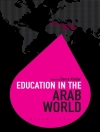The authors of Education, War & Peace travelled to Liberia, Sierra Leone and South Sudan to conduct research on education in these conflict-affected countries. They uncovered an inspiring story of entrepreneurs stepping into the breach and providing low-cost private schooling to large numbers of children in areas where government was not working well and basic infrastructure had been destroyed. For-profit schools also expanded quickly to soak up educational demand once the conflicts were over. The fees were affordable to families on the poverty line and the children did better academically than those in government schools. Yet international agencies continue to promote government-run schools, even though state education has been a major source of both conflict and corruption in these countries. This groundbreaking study advocates a different approach. Low-cost private schools should be welcomed by policymakers as a means of providing high quality educational opportunities for all.
O autorze
David Longfield is a researcher at the E. G. West Centre, Newcastle University, where his research focuses on education in post-conflict countries including South Sudan, Liberia and Sierra Leone. He studied for his first degree at Cambridge University followed a few years later by a PGCE at Newcastle University. He taught mathematics for fourteen years in south India, where he also held various senior management roles. Returning to the UK in 2005 he completed an MEd in International Development at Newcastle University. He co-authored with Professor Tooley the Pearson-published response to the DFID Rigorous Literature Review on low-cost private schools.












